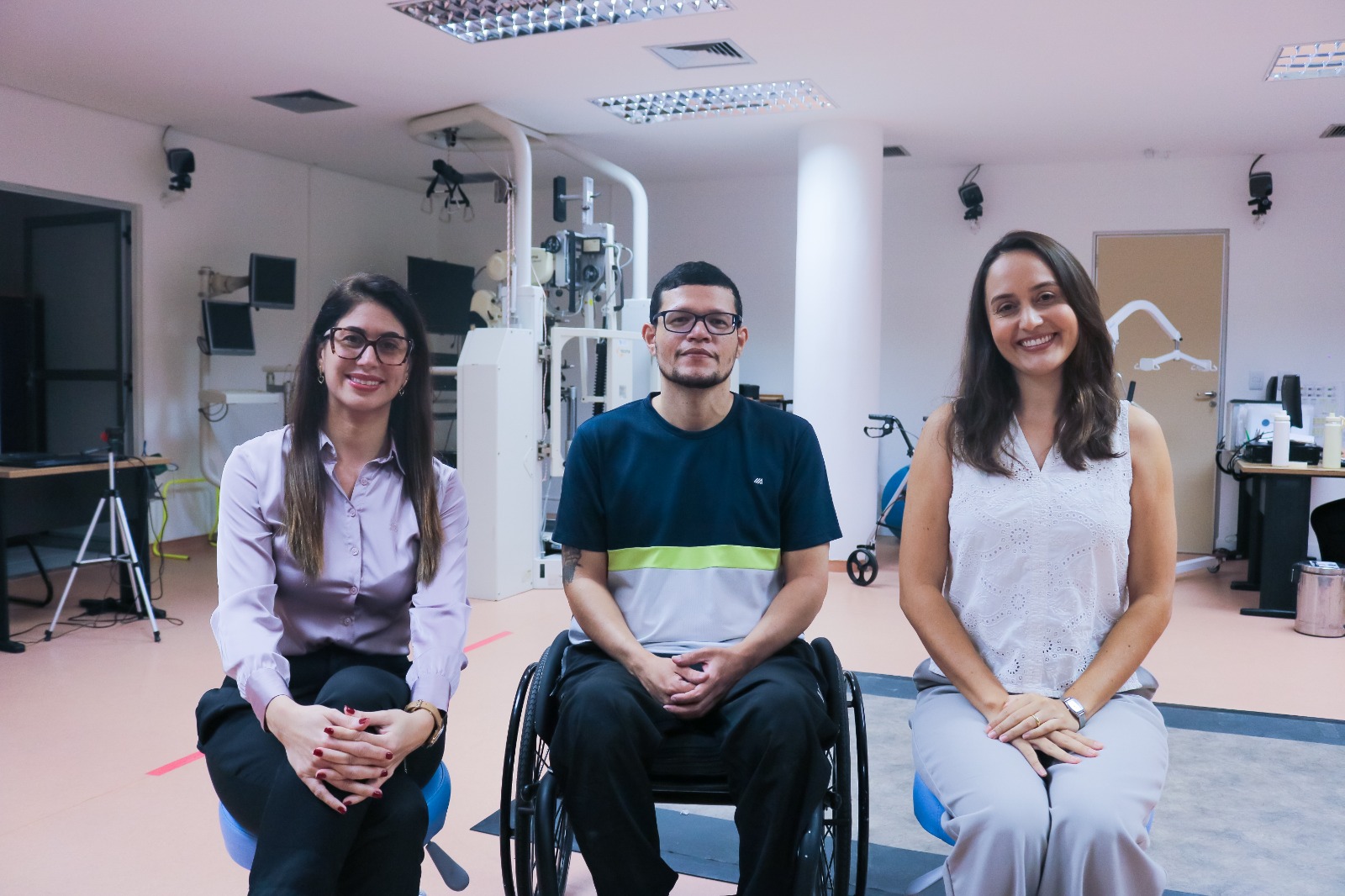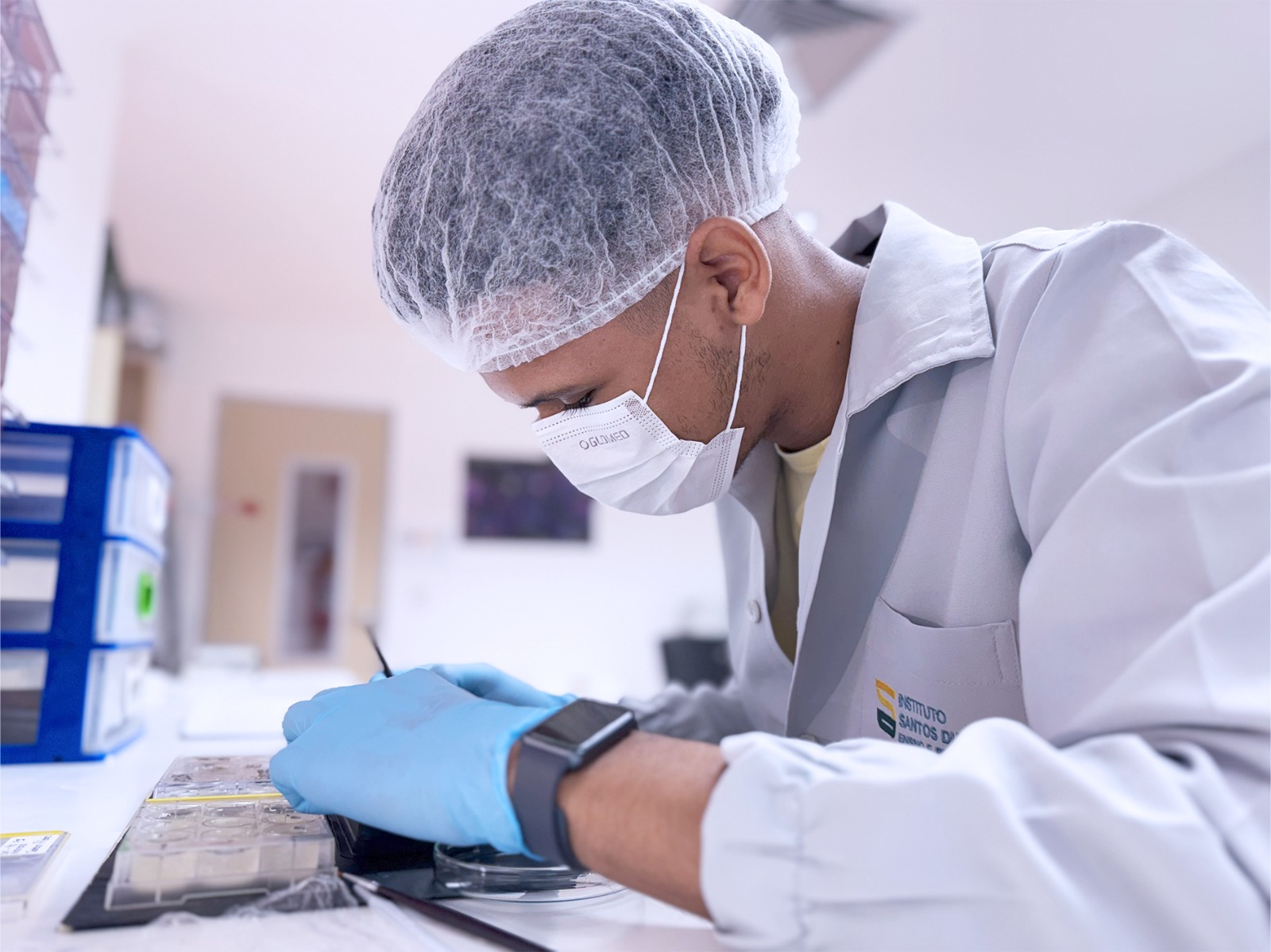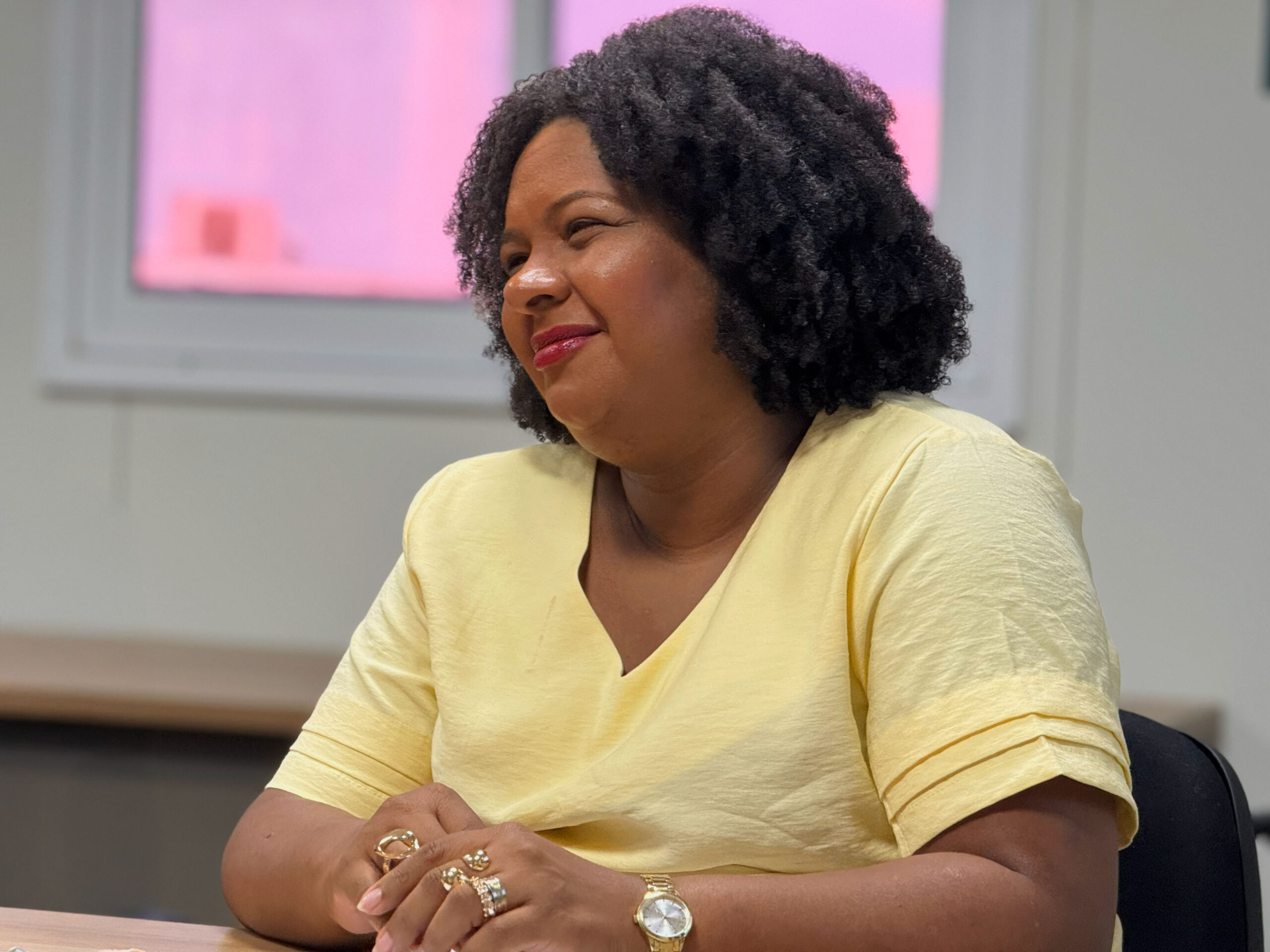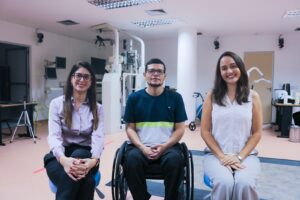Stimulation of tactile, visual and auditory sensitivity, improvement of balance, development of motor coordination and perception of movements. These are some of the benefits of Equine Therapy, a treatment that uses the help of horses. The modality has been used as an alternative therapy in the treatment of children with Autism Spectrum Disorder (ASD), monitored at the Anita Garibaldi Health Education and Research Center (Anita), at the Santos Dumont Institute (ISD).
According to multidisciplinary speech therapist Luana Aprígio, one of the professionals who accompanies children in hippotherapy sessions, children with ASD have sensory dysfunctions, despite not showing motor delays. “A child with autism crawls and walks at the right time, but there are changes in functionality, for example. They are unable to dress themselves, eat using cutlery, have communication difficulties, and hippotherapy aims to work on and improve their sensory and functional development”, he explains.
Magali Lima, 34, mother of Luiz, aged 4, who is monitored by the ISD's Multidisciplinary Autism Spectrum Care Service (Semea), says that she already sees the benefits of equine therapy for her son. “He improved his vocabulary, stopped having some inappropriate behaviors and I see that, for him, contact with the animal is a different way of facing therapy, usually done in an office. It's an outdoor activity, it brings contact with other people, he has multi-professional assistance, all of this brings immeasurable benefits, it made a very good change for Luiz despite the short time”, reports the mother.
Equine therapy is a complementary therapy that does not replace other therapeutic and educational interventions, but that brings clinical gains on a physical and psychological level, such as developing muscular strength, relaxation and body awareness. In 2022, five children aged 4 years will be monitored with equine therapy included in the treatment.
They are part of a national multicenter research project by the National Association of Equotherapy (ANDE), entitled “Communicating with equine therapy: The effect of equine therapy in the rehabilitation of people with autism spectrum disorder”, which aims to work on aspects of language and communication . The research has five data collection centers in Brazil, ISD being one of them.
“When riding a walking horse, we make countless postural adjustments, have contact with nature, with different stimuli to touch, vision and hearing. The child learns to self-regulate and thus advance in their development, pay more attention to others, open up more to the world, especially in terms of communication, which is the focus of the research in which we participate”, says Luana Aprígio.
Partnership
Since 2017, the Santos Dumont Institute (ISD) has carried out this type of approach in the treatment of children with Autism Spectrum Disorder (ASD) in partnership with the Escola Agrícola de Jundiaí (EAJ/UFRN), in the district of Jundiaí, in Macaíba. The School provides four animals to carry out the activity, in addition to trained professionals for their management.
“It is an activity that goes beyond the idea of providing care, generating serious results for scientific research, with a multidisciplinary team, a structure available to test, prove and publish results of this therapy, so that other people can use it anywhere”, said the professor and coordinator of the technical course in Agriculture at EAJ, Mário Cardoso.
Around 20 children with autism assisted by Anita have already undergone equine therapy since the service began. With the resumption of the partnership, the objective is to expand the treatment to cover patients from other specialties, such as Parkinson's Disease and Neurodevelopment.
Text: Kamila Tuênia / Ascom – ISD
Photograph: Kamila Tuênia / Ascom – ISD
Communication Office
comunicacao@isd.org.br
(84) 99416-1880
Santos Dumont Institute (ISD)
It is a Social Organization linked to the Ministry of Education (MEC) and includes the Edmond and Lily Safra International Institute of Neurosciences and the Anita Garibaldi Health Education and Research Center, both in Macaíba. ISD's mission is to promote education for life, forming citizens through integrated teaching, research and extension actions, in addition to contributing to a fairer and more humane transformation of Brazilian social reality.













